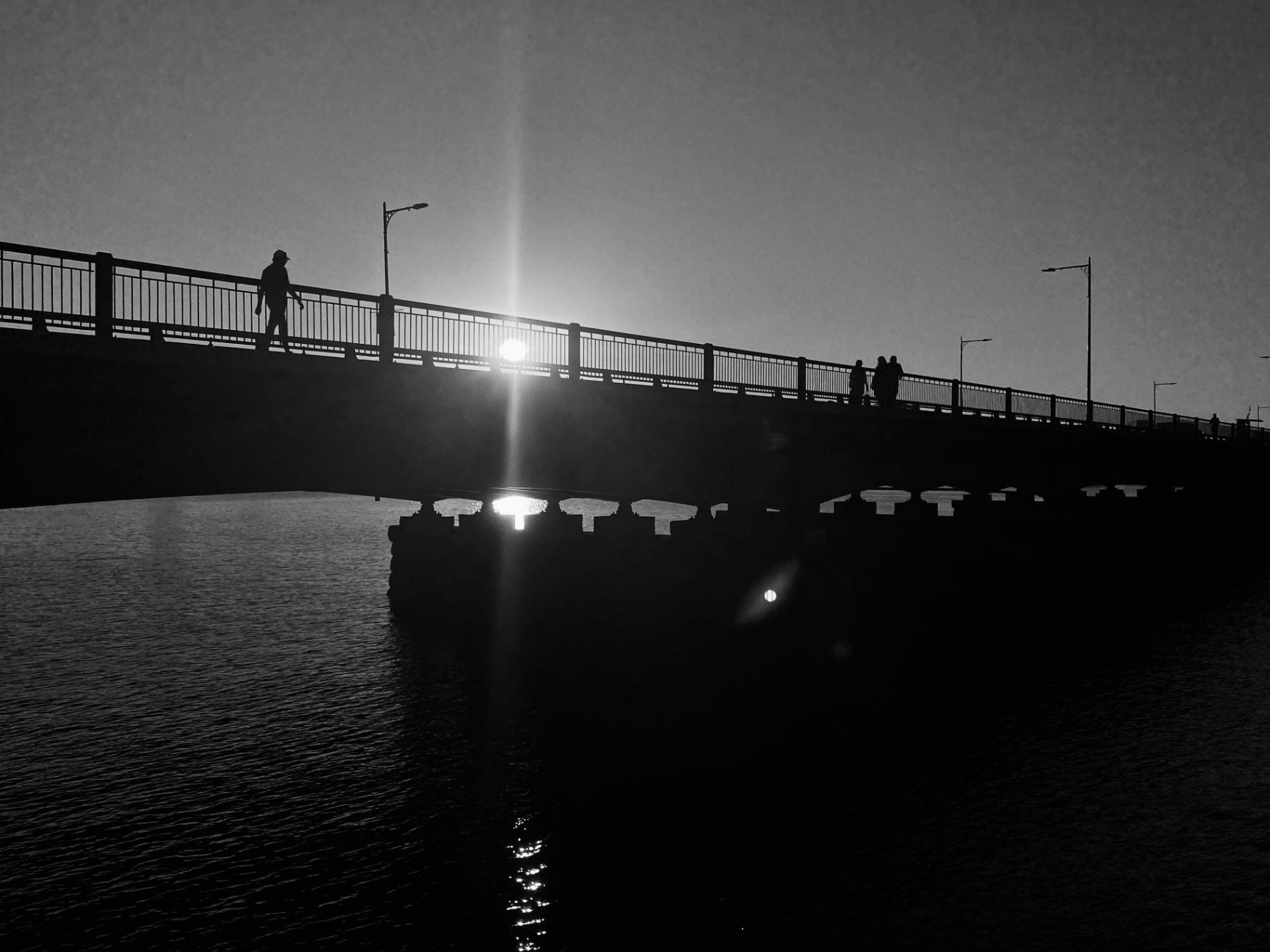It was tradition that when I’d finish enough of my work I’d take the rest to the kitchen table and accompany my mom and the chores. She always told me that the water and suds and cleaning chemicals would make my hands crack and bleed, so the most I could do was keep her company. It was ceremonial —
Are you lonely?
No, it’s alright.
I feel bad you’re out here.
You don’t have to.
Can I do something?
No, but you can sit. You’ve got things to do.
Well you do, too.
The ceremony wouldn’t end until she sat across from me bringing back all our family. This is how I met my grandfather and grandmother, my great-aunts and their husbands, the men and women that almost married my aunts and uncles but because of a last-second accident or cold–turned–lethal–illness never did.
My favorite stories were about my grandmother:
…I feel bad you’re out here.
You don’t have to.
Can I do something?
You can sit. You’ve got things to do.
Well you do, too.
She showed me pictures of my grandmother. I’ve only seen one of two blurry images of her — both in sepia — with her hair in a tight braid and wearing the apron she wore everywhere. In neither photo is she smiling or holding anyone but my aunt Rosa; she stands surrounded by all her children. My favorite story is from five or six days before she died. My mom was young and asked my grandmother what she’d do if she died. My grandmother responded, “I’d die too.”
My mom quickly responded back, “Mama, if you die, I’ll die too.”
My grandmother’s heart broke for the millionth time, knowing how sick she felt and how well she’d hidden it. “Don’t say that, baby. The sun rises and it sets, and if your mama dies you keep living for her.”
A few days later my uncle and my grandmother had an argument. He was her baby even though he was grown and married. They argued and argued back and forth until, at an impasse, they let the room go silent.
“Her voice went real quiet and she said, ‘The next time you come home, I’ll be dead, mijo. And you’ll see how they bury me and you’ll remember me, and you’ll see how they pack and beat the ground into the ground with stones and shovels and you’ll remember me, mi niño.’ And we all stood still.”
A week later her words came true and the whole town saw how my uncle couldn’t bear to see his brothers pound the dirt with large egg-shaped stones.
I met my grandfather through stories too. My mother told me two types of stories about him: ones so that “no man born of me or mine ever treats a woman like he did” and one so that “you don’t fall into the trap of calling some people good people and others bad.” It was with a smile that I learned that I smiled the way my grandfather did.
I once saw a relief in a museum of a Maya king calling to his ancestor for wisdom. On the left was the king, looking up as the smoke bore a face and body and words worth listening to on the right. The key detail was that the spirit looked different from the king; he was Olmec, not Maya. The Olmecs were an ancient people to the Maya, and to be a king who could trace his dynasty back to the Olmecs proved impressive royal pedigree. My teacher interrupted my guesses for what it must have been to see the dead face to face, asking, “If you could ask your dead, wouldn’t you?”
And I looked up again and saw the faces my mom drew for me years ago. My dead’s bones and skin long taken back by the earth. And yet their words rang in my head, scattered and faded since all memories fade and distort and go up in smoke; no memory is the same each time it is recalled. I now take every opportunity to recall my dead’s stories. I now say “you can sit” and I talk about my grandmother and my grandfather like I met them, I tell my parent’s stories like I saw them happen, I lean on my dead like they’re beside me. Their tragedies are my tragedies, the signs they saw born again in different clothes.
I left home, at first only for the summer and then for a month and eventually for most months of the year. My mom told me once that not even my youngest niece would sit in my chair at dinner time, as if they were mourning me. I learned that I could only speak good Spanish at home, and if I ever did anywhere else it was with my parents’ inflections and rhythms combined. Just as she invoked the voices of the family tree, I invoke my parent’s. Just as she’d speak out exactly what our long dead had said — and even sometimes what they should have said, had they been more clever or honest or brave — I called forth all they’d said when I talked about home.
Are you lonely?
No, it’s alright.
Let me give you company.
You don’t have to.
Can I though?
You can sit. We’ve got things to do.
We do.
Nada hay nuevo debajo del sol/There is nothing new under the sun.
Writer | Bryan Jimenez Flores ’26 | bjimenezflores26@amherst.edu
Editor | Mike Rosenthal ’27 | jrosenthal27@amherst.edu
